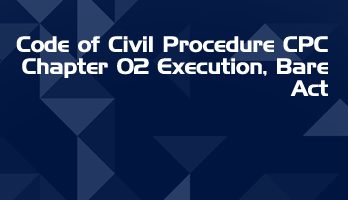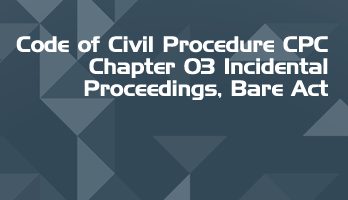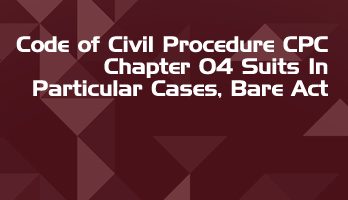A 'Bare act' is the actual legislation passed by the Parliament of India. Generally, an act sets out the high level legal and policy principles applicable to the subject matter of the law.
Most acts are accompanied by 'subsidiary legislation' such as rules, regulations, notifications and orders; which address the actual implementation detail of the act.
Free Full Course Available on LawMint's YouTube Channel
How to Land Your Dream LLB Internship in a Top Law Firm
- Part 1 - Introduction
- Part 2 - Internship Planning
- Part 3 - Internship Research
- Part 4 - Building Your Profile
- Part 5 - The Email
- Part 6 - The Resume
- Part 7 - The Cover Letter
- Part 8 - The Interview
- Part 9 - Self Development
Practical and comprehensive course, with real examples and step-by-step analysis of the complete internship application process. Check out LawMint's YouTube channel now!
Indian Divorce Act, 1869
Chapter IV – Nullity of Marriage
Section 18 – Petition for decree of nullity
Any husband or wife may present a Petition to the District Court or to the High Court, praying that his or her marriage may be declared null and void.
Section 19 – Grounds of decree
Such decree may be made on any of the following grounds –
- that the respondent was impotent at the time of the marriage and at the time of the institution of the suit;
- that the parties are within the prohibited degrees of consanguinity (whether natural or legal) or affinity;
- that either party was a lunatic or idiot at the time of the marriage;
- that the former husband or wife of either party was living at the time of the marriage, and the marriage with such former husband or wife was then in force. Nothing in this section shall affect the jurisdiction of the High Court to make decrees of nullity of marriage on the ground that the consent of either party was obtained by force or fraud.
Section 20 – Confirmation of District Judge’s decree
Every decree of nullity of marriage made by a District Judge shall be subject to confirmation by the High Court, and the provisions of section seventeen, clauses one, two, three and four, shall, mutatis mutandis apply to such decrees.
Section 21 – Children of annulled marriage
Where a marriage is annulled on the ground that a former husband or wife was living, and it is adjudged that the subsequent marriage was contracted in good faith and with the full belief of the parties that the former husband or wife was dead, or when a marriage is annulled on the ground of insanity, children begotten before the decree is made shall be specified in the decree, and shall be entitled to succeed, in the same manner as legitimate children, to the estate of the parent who at the time of the marriage was competent to contract.
Important Central Acts in Regional Languages
Legislative department website also features regional language versions of several important Central Acts.
Free Full Course Available on LawMint's YouTube Channel
How to Land Your Dream LLB Internship in a Top Law Firm
- Part 1 - Introduction
- Part 2 - Internship Planning
- Part 3 - Internship Research
- Part 4 - Building Your Profile
- Part 5 - The Email
- Part 6 - The Resume
- Part 7 - The Cover Letter
- Part 8 - The Interview
- Part 9 - Self Development
Practical and comprehensive course, with real examples and step-by-step analysis of the complete internship application process. Check out LawMint's YouTube channel now!












